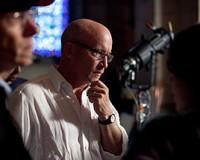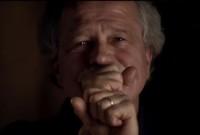Q&a: Director Alex Gibney on 'Mea Maxima Culpa', Sex Abuse & Taking the Film to Italy
By Nancy Tartaglione
lex Gibney won an Oscar for his 2007 documentary Taxi To The Dark Side about U.S. policy on torture and interrogation. He was also nominated for 2005’s Enron: The Smartest Guys In The Room. His latest film, Mea Maxima Culpa: Silence In The House Of God, taps into a subject that has, in various forms, increasingly made headlines this year. As allegations of the sexual abuse of minors by trusted figures have continued to surface – think: the Penn State scandal and the ongoing crisis over BBC kids’ show host Jimmy Savile – Gibney’s film is a damning investigation into pedophilia in the Catholic Church. Shining a light on what it calls “an international conspiracy of silence” that reaches all the way to the Vatican, the documentary “teaches us that we must recognize that the worst predators often consciously use their own personal charisma and the prestige of their institutions to commit and cover up their crimes,” Gibney says. At the outset, the story is told from the point of view of four deaf men who attended a Milwaukee Catholic boys school in the 50s and 60s where Father Lawrence Murphy abused them as well as what is believed to be over 200 others over time. Interweaving the boys’ saga, which the now-adult men recount in sign language voiced over by actors Chris Cooper, Ethan Hawke, Jamey Sheridan and John Slattery, the story travels to two of the world’s most Catholic countries: Ireland and Italy. There, stories of similar sex abuse cases are revealed as well as the actions of members and friends of the Holy See. Mea Maxima Culpa debuted in Toronto and won the documentary feature prize at the recent London Film Festival. It was released in NY and LA on Friday for its Oscar-qualifying run and will air on HBO on February 4. It was also, surprisingly given the subject matter, picked up for distribution in both Ireland (Element Pictures) and Italy (Feltrinelli), although it was refused by recent Italian festivals. I recently had the chance to catch up with Gibney and our coversation follows: DEADLINE: How will the film be released in Italy?
ALEX GIBNEY: Feltrinelli is a classic publisher. They will release it theatrically first and then as a DVD in bookstores. They really wanted to take this on after they saw it and liked it. They’re courageous and tough and imaginative. They may also do a simultaneous stunt release by beaming it out across Italy with Q & A sessions.
GIBNEY: In Ireland it will be a bit more traditional. Element saw it in Toronto and we had some Irish Film Board money.
GIBNEY: Soup to nuts it was two years. The church was not forthcoming.
GIBNEY: I had a good roadmap, but what’s interesting about it is that I learned the sense of pattern that you observe from country to country. It was valuable to spend time in Italy and Ireland and then suddenly the story of the school in Verona popped up (former pupils at a school for the deaf there have lodged claims of abuse by priests) and it was such an exact parallel (to Milwaukee). It showed evidence of these patterns. I also didn’t know that much about the Maciel story (Marcial Maciel Degollado was a prominent church fundraiser and sex criminal who was “beloved by Pope John Paul II,” according to the film)… It shows a dark side of John Paul.
GIBNEY: I’m dying to know what the reaction in Italy will be. It’s such an obvious film for Italy but we were turned down by the Venice Film Festival and the Rome Film Festival. And it’s not the quality of the film; we just won a big award in London, so that’s interesting. Feltrinelli taking it on is a real test… The people of Italy are becoming possessed of an increasingly boiling rage.
GIBNEY: I can’t think of a more Catholic country than Ireland… Reports have ripped the lid off. You have (Irish Prime Minister) Enda Kenny talking about the Vatican’s rape and torture of children.
GIBNEY: It was more emotionally powerful to have voices. Should we have gone with subtitles, if you cut away, and another witness picks up (it would have been hard to follow). We had translator voices but I wanted them to be performed and have a sense of emotion. The timbre had to be distinctive.
GIBNEY: The Penn State scandal and the Jimmy Savile scandal in the UK remind us of just how predators hide in plain sight by using their celebrity or the revence held for the organizations they represent to dispel suspicions and, worse, to gain access to victims. Mea Maxima Culpa is fundamentally about the Catholic Church. But it is not about religion; it is a crime story about the abuse of power… As we mention in the film, the sex abuse crisis in the Catholic Church is the result of what police call “noble cause corruption,” the belief that because you are dedicated to doing good, you can do no wrong.
GIBNEY: The hard part is that I don’t ever leave them behind. I feel like I have tin cans jangling on the sidewalk behind me. And you develop relationships with people because they tend to be deep (stories). You spend a lot of time continuing to reckon with it.
GIBNEY: Still editing. It’s an interesting position because I followed his comeback year and this was the year he wanted to do away with any doubt about his doping.
|
.
Any original material on these pages is copyright © BishopAccountability.org 2004. Reproduce freely with attribution.



